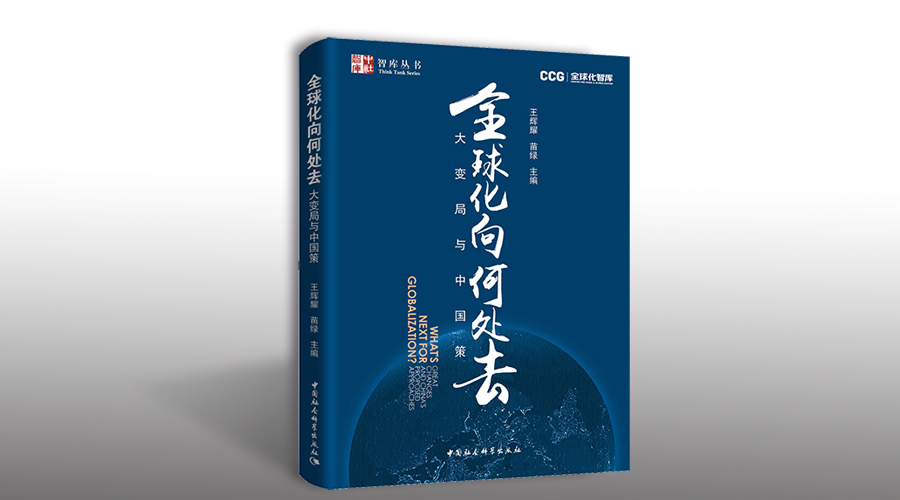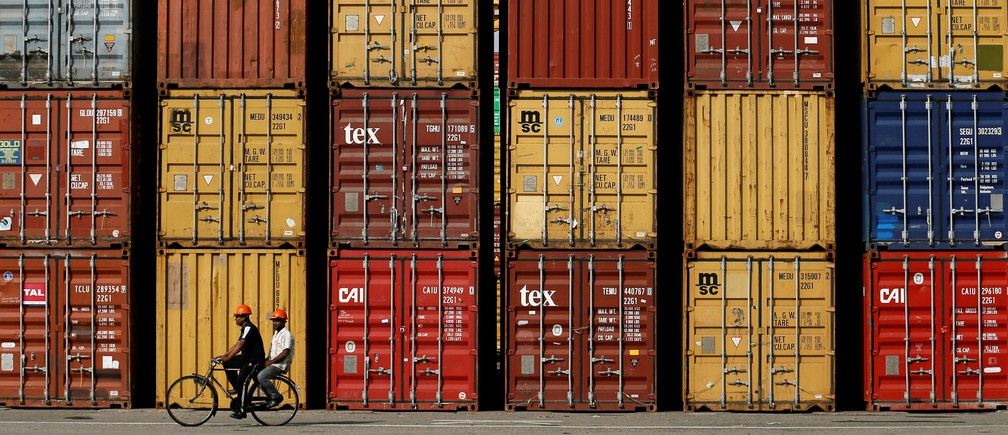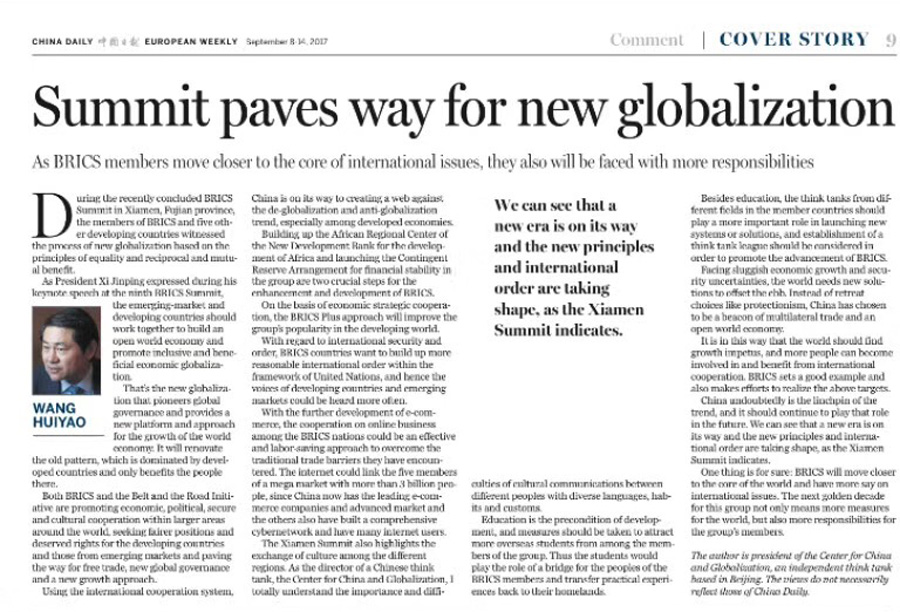CCG advocates the development of talent mobility. Committed to study of the globalization of talent, CCG conducts major research projects, organizes events, publishes books and research reports in the fields of international talent, international migration, overseas Chinese, and the situation of talent studying abroad and returning to China.
Impact on Policymaking Based on solid empirical research results, CCG proposes a series of policy recommendations to improve China's talent development and immigration system, and plays an active role in promoting major policies, such as the establishment of the National Immigration Administration.
CCG has published a series of Blue Books such as the Blue Book of Global Talent: Annual Report on the Development of Chinese Students Studying Abroad, Blue Book of Global Talent: Annual Report on Chinese International Migration, Blue Book of Regional Talent: Report on China’s Regional International Talent Competitiveness, and the IOM World Migration Report, as well as a series of English books with Springer, including China’s Domestic and International Migration Development, filling the gap in the field of international talent research in China.
CCG has established brand forums such as the China Talent 50 Forum and the Global Education 50 People Forum, and has hosted the China Overseas Returnees Innovation and Entrepreneurship Forum for many years.
CCG's initiative of establishing the Alliance of Global Talent Organizations is supported by relevant national ministries and the Beijing municipal government. CCG’s proposal was selected to participate in the first Paris Peace Forum and CCG held an event on the Alliance of Global Talent Organizations titled “Brain Drain: Making Better Use of the World’s Talent” at the second Paris Peace Forum.
-

What’s Next for Globalization?
What’s Next for Globalization? Great Changes and China’s Proposed Approaches is authored by CCG President Dr Wang Huiyao and CCG General Secretary Dr Miao Lu, and published by China Social Sciences Press. This book gives a systematic explanation and reflection of globalization, as well as expressing expectations on the future of the process as the title hints. Also included is a detailed analysis of the "China solution”, as seen through the eyes of Chinese scholars in the field of globalization. Through this, the book aims to promote "China wisdom" and the "China solution" to the world in order to further progress globalization.
September 27 , 2018 -

Emanuel Pastreich: Can culture be used for consensus in NE Asia?
There have been multiple efforts to find common ground in Northeast Asia between China, South Korea and Japan over the last 20 years. For the most part, the focus has been placed on promoting trade, removing barriers to investment, and holding meetings between ministers, vice ministers, CEOs and technical experts.
September 14 , 2018 -

Cheng Shuaihua: 3 things the G20 can do to save the WTO
This week, trade and investment ministers from the G20 will gather at Mar del Plata in Argentina for the first time since the tariff dispute started in the spring of 2018.
September 14 , 2018 -

Wang Huiyao: Summit paves way for new globalization
As BRICS members move closer to the core of international issues, they also will be faced with more responsibilities During the recently concluded BRICS Summit in Xiamen, Fujian province, the members of BRICS and five other developing countries witnessed the process of new globalization based on the principles of equality and reciprocal and mutual benefit. As President Xi Jinping expressed during his keynote speech at the ninth BRICS Summit, the emerging-market and developing countries should work together to build an open world economy and promote inclusive and beneficial economic globalization.
September 11 , 2017 -

Sun Zhe: Reciprocal thinking should prevail
Sun Zhe, an acdemic adivisor of the Center for China and Globalization (CCG) and director of the Center of China-US Relations at Tsinghua University. Intellectual property has been a constant issue in China-US trade disputes since the 1980s, a time when the US and Japan were locked in an enduring trade war over steel, intellectual property and automobiles. During those days Robert Lighthizer, incumbent US Trade Representative, established his credentials by leading a campaign of voluntary restraint agreements, countervailing duties and anti-dumping duties against Japanese imports. He might try to do the same against China.
August 24 , 2017


